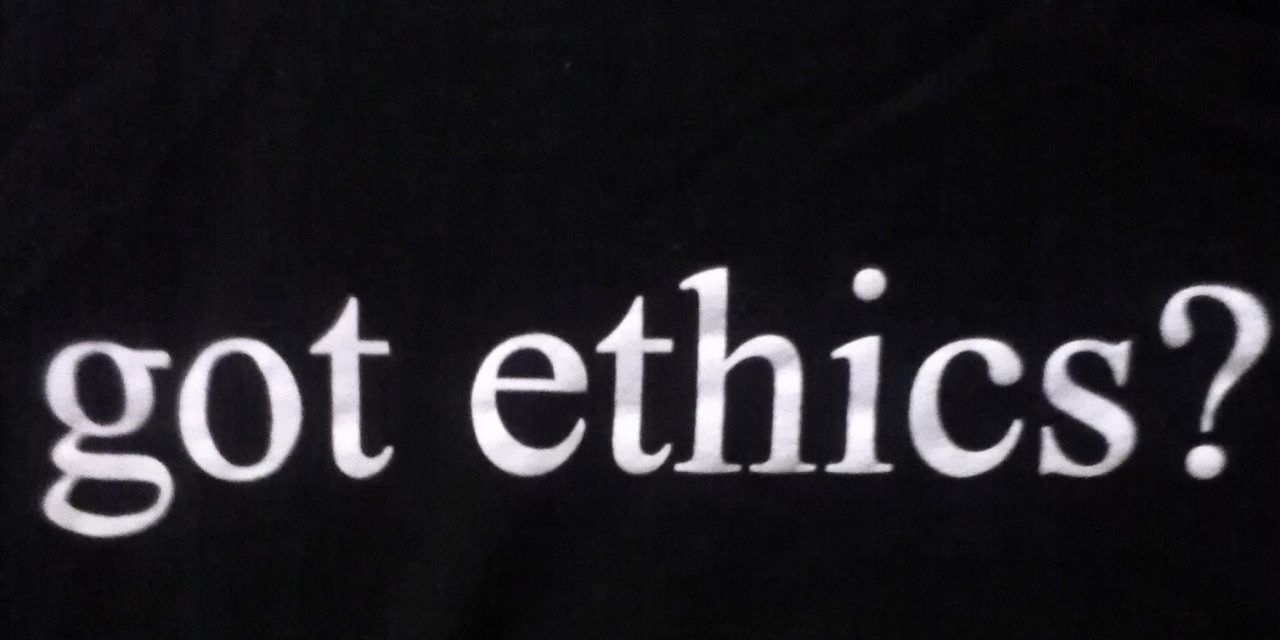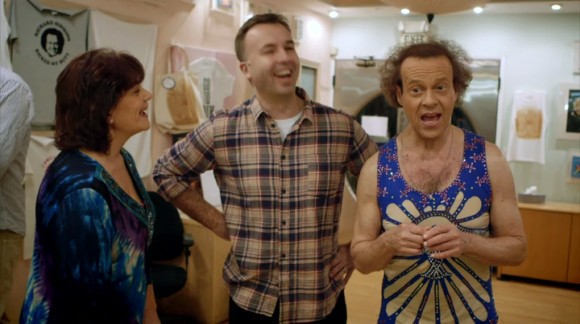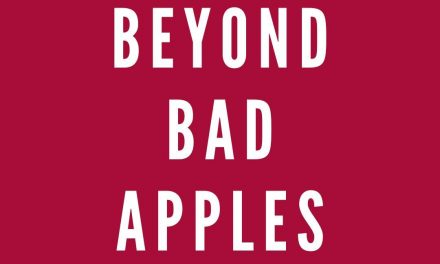(Earlier this month, the United States and Iran appeared to be on the brink of war. Some say that we are at war, even if at present it does not involve drones and missiles. At the time, and during the subsequent weeks, Catholic moral theologians have been raising and discussing such questions. Fellow ethicists from other denominational, religious, and philosophical moral traditions too have been doing so. At the Annual Meeting of the Society of Christian Ethics, the Society of Jewish Ethics, and the Society for the Study of Muslim Ethics, which met in Washington, DC on January 9-12, a number of us attempted to draft a statement, leading to the one I am sharing now here to let readers know and to foster further awareness of the sorts of questions that moral theology provides regarding the use of armed force. As the statement notes at the outset, not all signatories are Catholic moral theologians. Although in a more academic context involving scholarly articles we probably would diverge more, the general consensus that emerged here in this brief statement is noteworthy. Ethicists–Catholic or otherwise–are invited to contact me [tobias.winright@slu.edu] if they wish to add their signature.)*
As ethicists from a variety of religious and philosophical traditions and perspectives, and as ethicists from across a spectrum of approaches to the morality of the use of armed force, we agree on the following:
1) The drone killing of Iranian General Qassem Soleimani on January 3rd by the United States was not morally justified. While some of us think that deadly force is never morally justifiable, and others of us hold that it can sometimes be morally justified, we all agree that the decision to kill is a grave one warranting rigorous scrutiny. Although Gen. Soleimani may have been responsible for the deaths of others previously, and while he was an ongoing source of violence, we remain unconvinced that there was no other reasonable way to restrain his activities. In addition to the question of whether he or Iran posed an imminent and grave threat to the US and its allies, which has to do with the just-war criterion of just cause, his killing raises traditional just-war questions about: a reasonable hope of success in terms of stemming violence in the region; proportionality when considering whether the resulting evils outweigh those to which one is responding or seeking to prevent; and legitimate authority with regard to who makes such momentous decisions that could embroil us in war.
2) President Donald J. Trump’s threat to Iran that the US military would respond in a “disproportionate” way and target Iranian cultural sites would not be morally just. Disproportionate and indiscriminate uses of force are in direct violation of the international rule of law and the just-war criteria for the just conduct of armed force.
3) The shooting of the Ukrainian passenger jet and the deaths of its 176 passengers and crew members by Iran on January 8th is a reminder of the evils and unintended consequences accompanying the use of armed force even when the military action undertaken toward US military bases was meant to be, as Iranian Foreign Minister Mohammad Javad Zarif stated it, “proportionate” and “against legitimate targets.”
4) Although the shooting has stopped at this time, this is only a “negative peace,” one unlikely to last. Hence, in keeping with the traditional just-war criterion of right intent, we urge the US and Iran to turn their attention to diplomatic efforts toward aiming at and establishing a just peace. We recommend a shift toward exploring nonviolent methods of resistance to injustice, constructive conflict transformation, breaking the cycles of violence, and moving towards sustainable peace. Doing so should also help reduce the likelihood of military conflict and ensure that armed force, if ever employed, is truly in compliance with the just-war criterion of last resort. And while doing so, we should ask more longitudinal, historical questions about root causes and what has gotten us to this point in the first place.
Signed,
1) Tobias Winright, Associate Professor of Theological Ethics and Health Care Ethics, Saint Louis University
2) Anna Floerke Scheid, Associate Professor of Theology, Duquesne University
3) Scott Paeth, Professor of Religious Studies, DePaul University
4) Kevin Ahern, Associate Professor of Religious Studies, Manhattan College
5) Kevin M. Carnahan, Professor of Philosophy and Religion, Central Methodist University
6) Gerald W. Schlabach, Professor of Theology, University of St. Thomas (MN)
7) Michael Kessler, Managing Director, Berkley Center for Religion, Peace, and World Affairs, and Associate Professor of the Practice of Moral and Political Theory, Georgetown University
8) Justin Barringer, PhD Candidate in Religious Ethics, Southern Methodist University
9) Peter R. Gathje, Vice President of Academic Affairs/Dean and Professor of Christian Ethics, Memphis Theological Seminary
10) Karen Peterson-Iyer, Assistant Professor of Religious Studies, Santa Clara University
11) Daniel Cosacchi, Assistant Professor of Religious Studies, Marywood University
12) Michael McLaughlin, Adjunct Professor of Religious Studies, Old Dominion University
13) Hugh LaFollette, Cole Chair in Ethics, Emeritus, University of South Florida-St. Petersburg
14) Mark J. Allman, Professor of Religious and Theological Studies, Merrimack College
15) Vic McCracken, Associate Professor of Ethics and Theology, Abilene Christian University
16) William T. Cavanaugh, Director, Center for World Catholicism and Intercultural Theology, Professor of Catholic Studies, DePaul University
17) Bryan N. Massingale, Buckman Professor of Theological and Social Ethics, Fordham University
18) Andrew D. Walsh, Professor of Religion and Philosophy, Culver-Stockton College
19) David L. Clough, Professor of Theological Ethics, University of Chester (UK)
20) Lee C. Camp, Professor of Theology and Ethics, Lipscomb University
21) M. Therese Lysaught, Professor, Neiswanger Institute for Bioethics and Health Policy, Stritch School of Medicine, Institute of Pastoral Studies, Loyola University Chicago
22) Trevor Bechtel, Instructor at the School of Social Work, University of Michigan, Pastor, Shalom Community Church, Ann Arbor (MI)
23) Elizabeth Sweeny Block, Assistant Professor of Christian Ethics, Saint Louis University
24) Jacaranda Turvey Tait, Honorary Postdoctoral Fellow, University of Chester (UK)
25) Mary Jo Iozzio, Professor of Moral Theology and Professor Ordinarius, Boston College, School of Theology and Ministry
26) James P. Bailey, Associate Professor of Theology, Duquesne University
27) George Faithful, Assistant Professor of Religion and Philosophy, Dominican University of California
28) Darryl Trimiew, Director, Atlanta Divinity Center of the Christian College of Georgia
29) Grace Yia-Hei Kao, Professor of Ethics, Claremont School of Theology (CA)
30) Timothy Harvie, Associate Professor of Philosophy and Ethics, St. Mary’s University, Calgary (Canada)
31) Neil Messer, Professor of Theology, University of Winchester (UK)
32) Angela D. Sims, President, Colgate Rochester Crozer Divinity School
33) J. Milburn Thompson, Professor Emeritus of Theology, Bellarmine University
34) Elisabeth T. Vasko, Associate Professor of Theology, Duquesne University
35) Rev. Patrick Lynch, S.J., Professor Emeritus, Religious Studies and Theology, Canisius College
36) Lisa Sowle Cahill, J. Donald Monan, S.J. Professor of Theology, Boston College
37) Hank Spaulding, Adjunct Professor of Christian Ethics, Ashland Theological Seminary
38) Michael G. Long, Associate Professor of Religious Studies and Peace and Conflict Studies, Elizabethtown College (PA)
39) Steven R. Harmon, Associate Professor of Historical Theology, Gardner-Webb University School of Divinity
40) Elizabeth Hinson-Hasty, Professor of Theology, Bellarmine University
41) Marcus Mescher, Assistant Professor of Christian Ethics, Xavier University
42) Laurie Johnston, Associate Professor of Theology, Emmanuel College
43) J. Aaron Simmons, Associate Professor of Philosophy, Furman University
44) Erin Dufault-Hunter, Assistant Professor of Christian Ethics, Fuller Theological Seminary
45) Matthew Gaudet, Lecturer, Santa Clara University
46) George Hunsinger, Hazel Thompson McCord Professor of Systematic Theology, Princeton Theological Seminary
47) Elizabeth Collier, Christopher Chair of Business Ethics, Dominican University
48) John Renard, Professor of Islamic Studies, Saint Louis University
49) Dawn M. Nothwehr, OSF, The Erica and Harry John Family Professor of Catholic Theological Ethics, Catholic Theological Union
50) Todd Salzman, Amelia and Emil Graff Professor of Catholic Theology, Creighton University
51) Debra Dean Murphy, Associate Professor of Religious Studies, West Virginia Wesleyan College
52) Lisa Fullam, Professor of Moral Theology, Jesuit School of Theology of Santa Clara University
53) Christopher Steck, S.J., Associate Professor of Theology and Religious Studies, Georgetown University
54) Margaret R. Pfeil, Associate Teaching Professor of Moral Theology/Christian Ethics, University of Notre Dame
55) Paul J. Wadell, Professor Emeritus of Theology and Religious Studies, St. Norbert College
56) Stephen Wilson, Associate Professor of Theology, Spring Hill College
57) Matthew Tapie, Assistant Professor of Theology and Director, The Center for Catholic-Jewish Studies, Saint Leo University
58) Aristotle Papanikolaou, Professor of Theology, Archbishop Demetrios Chair in Orthodox Theology and Culture, Fordham University
59) Robert W. Heimburger, Research Fellow in Theological Ethics, University of Aberdeen (UK)
60) SimonMary Aihiokhai, Assistant Professor of Systematic Theology, University of Portland
61) Jana M. Bennett, Professor of Theological Ethics, University of Dayton
62) Vincent C P Lau, Assistant Professor, Hong Kong Baptist Theological Seminary
63) Jacob Torbeck, Instructor of Ethics and Theology, Loyola University Chicago
64) D. Stephen Long, Cary M. Maguire University Professor of Ethics, Southern Methodist University
65) Mari Rapela Heidt, Assistant Professor of Religious Studies, Notre Dame of Maryland University
66) Meghan Clark, Associate Professor of Moral Theology, St John’s University (NY)
67) Susan A. Ross, Professor Emerita of Theology, Loyola University Chicago
68) T. Michael McNulty, SJ, Scholar in Residence, Marquette University Center for Peacemaking
69) John Inglis, Professor of Philosophy and Religious Studies, University of Dayton
70) Terrence W. Tilley, Avery Cardinal Dulles, S.J., Professor of Catholic Theology Emeritus, Fordham University
71) David O’Brien, Professor of Catholic Studies Emeritus, College of the Holy Cross
72) Joseph J. Fahey, Professor of Religious Studies (Ret.), Manhattan College
73) William L. Portier, Mary Ann Spearin Chair of Catholic Theology, University of Dayton
74) Jame Schaefer, Associate Professor of Systematic Theology and Ethics, Marquette University
75) David Hollenbach, S.J., Pedro Arrupe Professor, Walsh School of Foreign Service, and Senior Fellow, Berkley Center for Religion, Peace and World Affairs, Georgetown University
76) William J. Collinge, Professor Emeritus of Theology and Philosophy, Mount St. Mary’s University
77) Jeremy V. Cruz, Assistant Professor of Theological Ethics, St. John’s College of Liberal Arts & Sciences
78) Mikael Broadway, Associate Professor of Theology and Ethics, Shaw University Divinity School
79) Ron Pagnucco, Associate Professor of Peace Studies, College of St. Benedict/St. John’s University
80) Andrew Keuer, Lecturer in Theology and Ethics, the Greek Bible College (Greece)
81) Ashley Moyse, McDonald Postdoctoral Fellow in Christian Ethics and Public Life, University of Oxford
82) William George, Emeritus Professor of Theology, Dominican University
83) John Sealey, Provincial Assistant for Social and International Ministries, USA Midwest Province Jesuits
84) Paul Dafydd Jones, Associate Professor of Religious Studies, University of Virginia
85) David DeCosse, Markkula Center for Applied Ethics, Santa Clara University
86) Elena G. Procario-Foley, Br. John G. Driscoll Professor of Jewish-Catholic Studies, Iona College
87) Brian Stiltner, Professor of Theology and Religious Studies, Sacred Heart University
88) Roger Bergman, Professor Emeritus of Cultural & Social Studies, Creighton University
89) David P. Gushee, Distinguished University Professor of Christian Ethics, Director, Center for Theology and Public Life, Mercer University
90) Dolores L. Christie, former Executive Director of the Catholic Theological Society of America
91) John T. Pawlikowski, OSM, Professor Emeritus of Social Ethics, Catholic Theological Union, Chicago
* Institutional affiliations are for identification purposes and do not reflect endorsement by said institutions.




